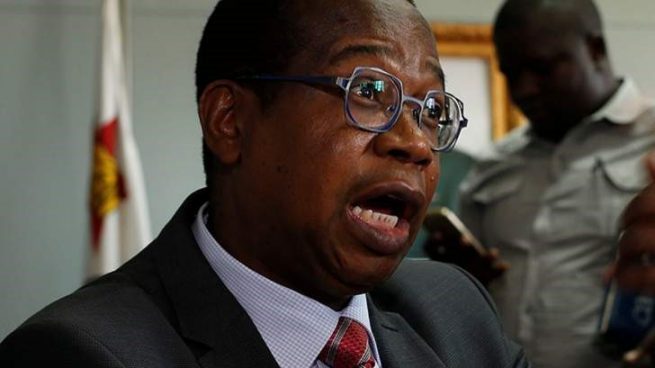Source: Ncube mulls new salary increases – The Zimbabwe Independent August 23, 2019
FINANCE minister Mthuli Ncube is mulling fiscal and monetary policy interventions to stimulate the economy. The measures will, among other outcomes, see interest rates dropping and some sort of tax cuts for workers in the current financial year.
By Chris Muronzi
In an interview this week, Ncube told the Zimbabwe Independent he would move to lower interest to stimulate production, but indicated this would be a gradual process.
On the fiscal side, he said he was considering various options available to him to stimulate the economy, such as tax cuts.
This, he said, was necessary to stimulate aggregate demand locally in the wake of what he described as a wage compression — a situation in which salaries for low-skilled workers and high-skilled employees gravitate towards each other. Apart from these interventions, Ncube said he would also raise salaries for civil servants.
He added this would be done in a sustainable manner and will not be “exorbitant”.
“We are doing everything we can so that we can stimulate demand. We are pushing for an increase in wages. Obviously, this will be done in a sustainable manner and it can’t be an exorbitant amount and industry is doing the same by increasing wages,” he said.
“We are also going to lower interest rates over time so that we reduce the cost of borrowing. This is to enable industry to borrow and ensure that we don’t get into unnecessary expenditure that are not prudent and in line with everything we are doing. We want to stimulate demand and ensure that supply constraints to industry are unblocked.”
Ncube said government has launched a ZW$40 million venture fund to invest in industry and doubled financial resources to the Industrial Development Corporation from ZW$30 million to ZW$60 million, adding government was sourcing other facilities to aid industry. He said he was satisfied with fiscal reforms he undertook since he became Treasury boss, adding his focus was now on the micro economy.
Turning to the introduction of a new currency, Ncube said this would be done gradually. “The process for introducing a fiat currency is over time. There is no really big rush to do so. It is governed by the normal process of drip feeding the money in circulation. But this will be determined by such things as demand for cash or credit. So this will done gradually over time,” he said.
“As we go forward, we are going to focus on jobs creation, productivity and focus on raising competitiveness.”
Ncube said the current economic hardship were transitory and would come to pass. “It took a while to get here (current economic situation), 37 years of mismanagement in some areas. And it’s going to take some time to get everything right. It’s a painful period but it’s a transitory and temporary period that will come to pass. At the same time, we are cushioning those who are impacted in areas of food, cash transfers and transport in urban,” he said.
He defended command agriculture, saying he would ensure accountability and every cent will be repaid. “The US$3 billion you refer to is well-accounted for, is actually accounted for. We can provide documentation should anyone desire to see that documentation. Regarding what we are doing with the extra ZW$2 billion that we have allocated for the command initiative: firstly, it is in the budget. It was approved by parliament. This means it will be tracked properly. Secondly, we are also going to be working with the banking sector.”
The Zimbabwe Anti-Corruption Commission (Zacc) is investigating possible abuse of funds under the controversial command agriculture scheme amid claims that there are no records of how close to US$3 billion was disbursed. One of President Emmerson Mnangagwa’s close associates and advisers, Kuda Tagwirei, was heavily involved in the scheme that began in 2016, as his company Sakunda was said to be the financier and major beneficiary.
The Agriculture ministry last month told parliament’s Public Accounts Committee it had no idea how US$2,9 billion disbursed for command agriculture was utilised.
« Police bash Doug Coltart
Rotten eggs wrapped in fresh glittering plastics »

